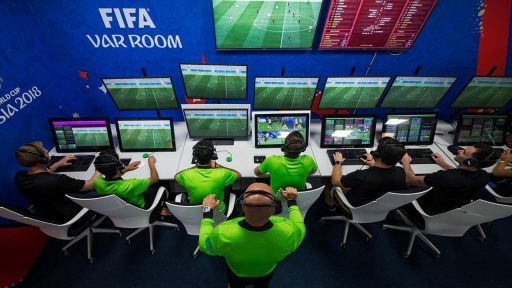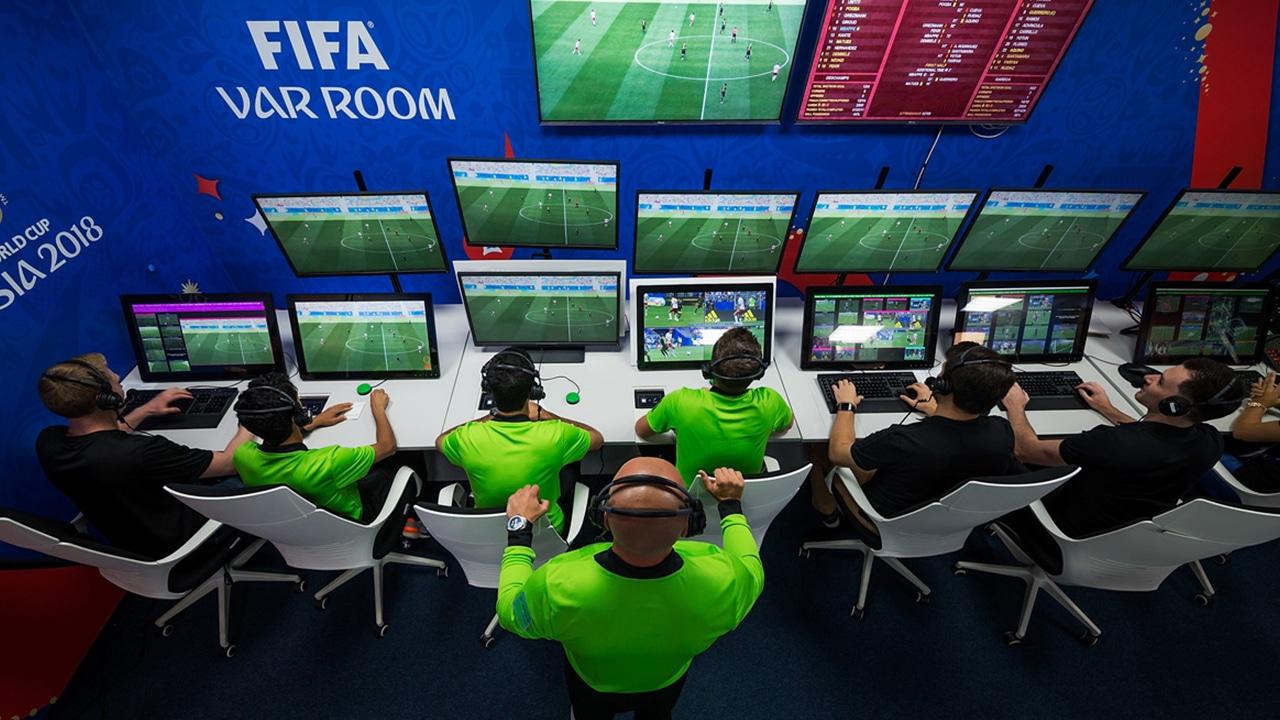Instant Access
No Waiting, Start Streaming Now
24/7 Support
Always Here to Help
Multi-Device
Watch on Any Screen
8K Quality
Crystal Clear Streaming


Instant Access
No Waiting, Start Streaming Now
24/7 Support
Always Here to Help
Multi-Device
Watch on Any Screen
8K Quality
Crystal Clear Streaming
in the ever-evolving landscape of football, where every pass, tackle, and goal can spark debate, the introduction of Video Assistant Referee (VAR) technology promised a new era of clarity and fairness. However, as fans and pundits alike have witnessed time and again, the journey to perfection is fraught with controversy. The recent clash between Ipswich Town and Chelsea provided yet another chapter in this ongoing saga, with a pivotal penalty decision for Ipswich and a critical moment involving Chelsea’s Pedro that raised eyebrows for potential misconduct.In this article, we delve into the intricacies of the VAR review process in the context of these incidents, examining the implications for both teams and the broader conversations surrounding officiating in football today. Join us as we break down the key moments and explore the ongoing relationship between technology and the gorgeous game.
Sunday’s high-stakes clash between Ipswich and Chelsea reignited debates over the use of VAR when a pivotal moment in the second half left fans, pundits, and players alike questioning the technology’s consistency. Ipswich were awarded a penalty after what seemed like clear contact in the box,but VAR intervened,suggesting a review for a potential simulation rather than a foul. Upon inspection, slow-motion replays showed minimal, yet arguably sufficient, contact on the attacking player. Though, the referee controversially overturned the decision, leaving Ipswich supporters incensed and reigniting concerns about whether VAR is being used to ‘referee the game’ rather than support the officials on the field.
Adding to the drama, the match had already seen an earlier incident involving Chelsea’s Pedro, who escaped a second yellow card for what looked like an intentional foul to stop a potential counterattack. While VAR reviewed his challenge, the decision was perplexingly classified as “not a clear and obvious error,” allowing the Spaniard to remain on the pitch. Fans took to social media to express their frustration at what they called “inconsistent refereeing standards,” pointing out similar fouls in other matches where red cards were issued. Below is a breakdown of the major talking points during the game:
| Incident | VAR outcome | Fan Reaction |
|---|---|---|
| Ipswich Penalty Call | Overturned | Frustration |
| pedro’s Foul | Play On | Anger |
Pedro’s risky challenge in the second half has sparked debate among fans and pundits alike. Many expected the VAR review to escalate the decision to a red card,but the referee deemed it unworthy of such punishment,citing “insufficient force” in his post-match comments. Was it the right call? While the tackle seemed reckless, closer inspection revealed minimal contact—suggesting that intent played a pivotal role in the final verdict.Though, football remains subjective, and this incident has once again highlighted the fine line between what’s considered reckless versus merely clumsy.
| Key Factor | Outcome |
|---|---|
| VAR Intervention | No card upgrade |
| Pedro’s Reaction | Swift apology, no protest |
| Referee’s Justification | Insufficient force |
In this burgeoning age of Video Assistant Referee (VAR), the dynamics of football are being redefined, sparking intense debates among fans and analysts alike. The technology’s primary aim is to minimize human error, but as seen in the Ipswich vs. Chelsea clash, its application is far from flawless. The controversial decision to award Ipswich a penalty following a close VAR review left Chelsea supporters incensed, arguing that there was minimal contact in the box. Critics point out that such marginal calls undermine the spirit of the game, where slight physicality is part of the contest. Meanwhile, Ipswich’s fans celebrated as VAR validated their claim, proving yet again how polarizing the system is. and there lies the question for football’s future: is VAR preserving the game’s fairness or stripping it of spontaneity?
The same match showcased another debated VAR moment when Pedro escaped a second yellow card for a reckless challenge. why was no red card given? The VAR team reviewed the incident but deemed it insufficient to overturn the referee’s initial decision. This discrepancy in interpretation raises eyebrows, as similar tackles in other games have incurred harsher penalties. Consider this breakdown:
| Incident | VAR Decision | Fan Reaction |
|---|---|---|
| Ipswich Penalty | Given | Divided |
| Pedro’s Challenge | No Red Card | Controversial |
The controversial use of Video Assistant Referees (VAR) in high-stakes football matches has reignited debates about the consistency and fairness of its application. In matches that carry immense pressure, such as Ipswich’s contentious penalty against Chelsea and Pedro’s seemingly overlooked red card offense, fans and analysts are asking: is VAR truly serving justice, or is it amplifying inconsistencies? While the technology was designed to eliminate clear-cut errors, its subjectivity in certain game-defining moments frequently enough leaves both teams and supporters frustrated. Should these pivotal decisions in “big occasions” have stricter guidelines, or does that risk overburdening referees with even greater scrutiny? these are basic questions as VAR becomes an undeniable part of modern football culture.
The Ipswich penalty controversy shows how referees can interpret the same footage in drastically different ways, especially under intense crowd pressure and time constraints. For Pedro’s unpunished challenge, the question arises: why wasn’t the play paused for a deeper review? Potential solutions could include:
As the dust settles on a pulsating encounter between Ipswich and Chelsea, the VAR review process has once again taken center stage, igniting debates and discussions among fans, pundits, and players alike. The contentious penalty awarded to Ipswich and the narrow escape for Chelsea’s Pedro from a red card exemplify the challenges and complexities of modern football officiating. As technology continues to shape the beautiful game, this match serves as a reminder of the fine line between human judgment and technological assistance. As we look to the future, one can only hope that lessons learned from these pivotal moments will refine and enhance the way we experience football. Until next time, the continuing evolution of VAR will keep us on our toes, ensuring that every matchday remains as thrilling and unpredictable as the game itself.
34,353
Live TV Channels
162,404
Movies
27,802
Series
284,023
Total Subscriptions
139,854
Users Online
142,887
Total Resellers

